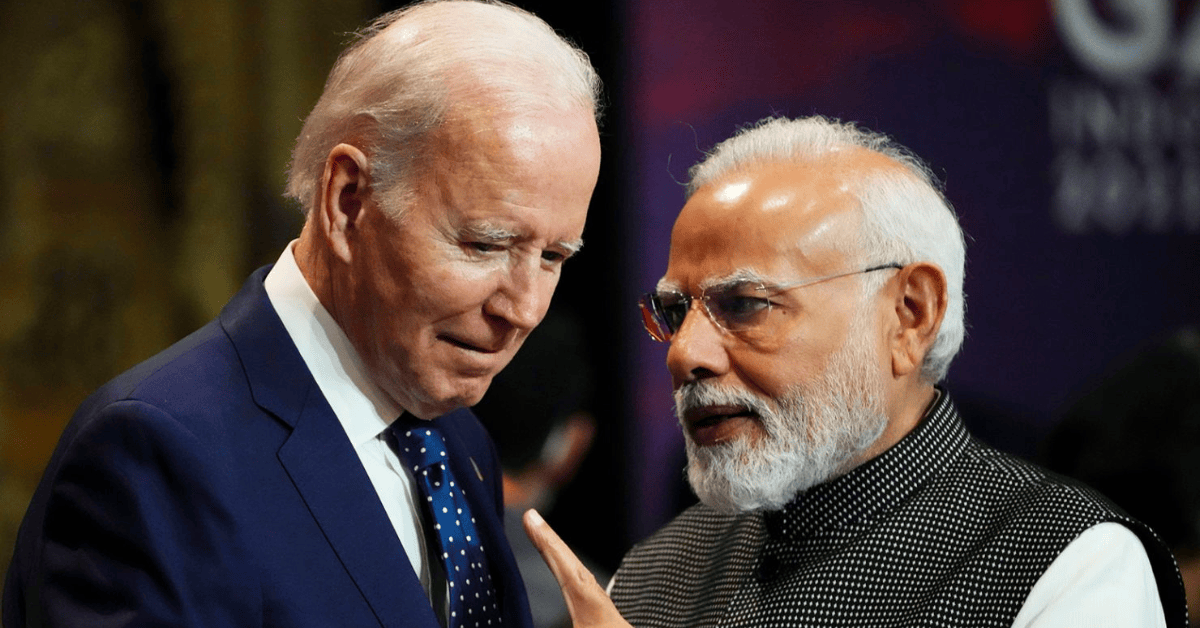The Bans Just Keep Coming—What’s Up with That?
Another week, another Indian tech company slapped with a “no entry” stamp by the United States. If you’ve been watching the headlines—or even just casually doomscrolling—chances are you’ve seen some variation of this: USA bans another Indian company over “security concerns.”
But let’s be honest—what’s the real deal here?
Are these bans genuinely about national security, or is there a layer of pressure politics playing out like a Netflix geo-political thriller? And more importantly—who’s winning in all this?
Let’s break it down, piece by piece.
BANNING Indian Companies: What’s the Latest Ban All About?
So, the video in question (yeah, the one that inspired this article) goes in hard on how the US recently blacklisted several Indian companies. These aren’t some random street-corner startups—they’re heavyweight defense tech and semiconductor firms, including Alpha Design Technologies and Sahasra Electronics.
Why? Allegedly, over ties to Russia and Iran. The US says it’s about safeguarding international peace and blah blah blah. But let’s not kid ourselves—it smells a lot like selective morality.
A Quick Flashback: Who Got Banned Before?
This isn’t America’s first rodeo. Here’s a brief timeline of previous Indian companies facing the heat:
2019: DRDO-affiliated firms scrutinized for “dual-use” technologies
2021: Telecom firms targeted for Huawei-style accusations
2023: Indian AI startups flagged over “biometric data misuse” (ironically by a country that invented mass surveillance)
Every year, the list gets longer—and sketchier.
What Does “Banned” Really Mean in This Context?
Great question. It’s not like these firms are getting deleted from existence. Here’s what a “ban” actually includes:
Prohibition on US-based investments
Blacklisting from defense procurement deals
Revocation of tech transfer licenses
No access to Silicon Valley collaborations
It’s less “you’re dead to us” and more “you’re not invited to the party—and we told everyone you’re weird.”

What Does “Pressure Politics” Mean in This Fight?
“Pressure politics” refers to using economic sanctions or bans to force policy changes. Think of it as a high-stakes game where the USA leverages its market power to push India into aligning with its interests—like cutting ties with Russia or tightening data laws.
A US trade official anonymously admitted: “We need India to play by global rules. Sometimes, sanctions are the only language they understand.”
But India’s Trade Minister fired back: “This isn’t about rules—it’s about control.”
The Timeline: From Trade Ties to Trade Tensions
Let’s connect the dots a little:
2010–2015: USA and India are BFFs in tech trade
2016–2020: Minor trade hiccups, some defense jealousy
2021: China tension escalates—India cozies up to Russia
2023–2025: US bans become more frequent, more pointed
The pattern? Whenever India gets close to Russia—or makes tech breakthroughs—the ban hammer swings.
Who’s Saying What?
Indian Government:
“We view these bans as unfair, discriminatory, and potentially damaging to bilateral relations.”
US Officials:
“These companies pose a risk to global peace. This isn’t personal—it’s policy.”
Experts:
“Selective enforcement suggests a strategy to curb India’s tech independence.”
Public:
“Wait, we’re the world’s biggest democracy and we’re being treated like Iran now?”
The Heart of the Issue: National Security or Business Monopoly?
This one’s juicy. The video lays it out clearly: the “national security” card gets played whenever the US feels a tech rival breathing down its neck.
And India? It’s no longer the cute outsourcing guy. It’s building semiconductors, satellite systems, and next-gen AI.
That’s a threat—to someone’s monopoly.
Pressure Politics: How Real Is It?
“Pressure Politics” isn’t just a phrase tossed around by political science nerds. It’s real. It’s when countries don’t declare war—but push buttons using trade, bans, and bureaucracy.
India’s companies get banned, and suddenly they’re more “cooperative.” That’s not national security—it’s playground bullying on a global scale.
Big Quotes That Matter
“If India partners with nations we deem hostile, we will reassess our trade agreements.” — U.S. State Department Official
“The global South can’t be punished for refusing to choose sides.” — Indian Trade Minister, 2024
“Today’s bans are tomorrow’s lost partnerships.” — Reuters Tech Analyst
Oof. Those words cut deep.
Data Speaks: Stats, Figures, and What They Show
Let’s get into the numbers:
$2.3 Billion in trade impact from the 2024 ban wave
12+ Indian tech firms frozen out of joint US ventures
36% dip in US-India tech investments this fiscal year
0 American companies banned by India during the same time
Double standards? You decide.
Behind the Curtain: Who Benefits from the Bans?
Here’s the twist: bans don’t just punish—they reward too.
US defense firms face less competition
Silicon Valley maintains intellectual dominance
Political parties gain clout for “protecting national interest”
It’s not just about who gets hurt—it’s about who gets rich.
Tech Cold War? Yeah, It’s a Thing Now
If this sounds like the US-China trade war… well, bingo.
India’s growing tech base, independence in chip design, and refusal to toe the line = a problem for the US.
The video compares it to the early days of the Tech Cold War, and India’s officially a player on the board now.
Background: The USA-India Love-Hate History
Since the 1990s, India’s economic boom made it a critical partner for the USA. But cracks appeared when:
India refused to condemn Russia’s Ukraine invasion.
Modi’s “Make in India” policy clashed with Biden’s “Buy American.”
Data localization laws irked Silicon Valley giants.

India’s Counter Moves: Not Just Sitting Quietly
India’s not playing defense anymore.
Launching its own semiconductor policies
Increasing deals with France, Israel, and the UAE
Pumping $10 billion+ into domestic manufacturing
Talks of reciprocating bans gaining political traction
India may be patient—but not passive.
Future Implications: What’s Coming Next?
Brace yourselves. Based on the current trends:
Expect more bans before the US elections
Possible retaliatory measures from India
Shift of Indian alliances toward Europe and the Middle East
Big hit to US-India diplomacy if this continues
2025 is looking spicy—and not the good curry kind.
Conclusion: What Should We Really Worry About?
It’s easy to label this as just another political spat, but there’s more at stake. These bans don’t just freeze trade—they chill innovation, global trust, and strategic cooperation.
India’s rise in tech is inevitable. Banning it won’t slow it down.
But it might just speed up a geopolitical reset no one’s ready for.
FAQs
1. Why does the USA keep banning Indian companies?
Mainly over alleged national security concerns, often tied to foreign relations and tech independence.
2. Which Indian companies were recently banned?
Alpha Design Technologies, Sahasra Electronics, among others.
3. Is this related to India’s ties with Russia?
Yes, that’s one of the main justifications from the US side.
4. What is pressure politics?
Using non-violent means like trade bans or sanctions to manipulate another country’s policies.
5. Is this a new thing?
Nope. But it’s happening more frequently and more aggressively now.
6. How do these bans affect India?
Tech delays, investment dips, and strategic recalibrations.
7. Does India ban US companies?
Not with the same frequency or intensity.
8. Could this lead to bigger conflict?
Potentially a diplomatic one, yes. Especially if both sides escalate.
9. Are other countries affected?
Yes—any nation not aligning with US strategic interests may face similar tactics.
10. Is this part of the Tech Cold War?
Looks like it. India is the latest to get dragged in.
11. Are there any benefits for India?
It forces self-reliance and diversification of international partnerships.
12. How has the public reacted?
Mixed—some are angry, others see it as an opportunity for India to rise independently.
13. Will the bans be lifted?
Unlikely anytime soon, unless strategic interests realign.
14. Is the Indian government doing anything?
Yes—boosting local tech, forming new alliances, and pushing back diplomatically.
15. Should I be concerned as an investor?
Yes—watch the geopolitical space carefully before making international tech investments.
Please don’t forget to leave a review.
Explore more by joining me on Gemscor.














